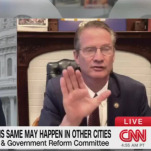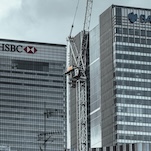Keir Starmer Drops the Pretense and Promises Pain for Britain
Photo by Richard Pohle - WPA Pool/Getty Images
It was in the quaintest of settings, the sun-soaked “rose garden” of Downing Street in London, that the new prime minister took to the lectern to address his public. “I will be honest with you,” Keir Starmer said, affecting that exquisitely boring tone of his, designed to dull the listener’s senses into barely noticing that what he says tends to be bullshit, “there is a budget coming in October, and it’s going to be painful.”
It was a historic moment: the prime minister, in a rare lapse from the norm, had plainly told the truth.
Since entering office two months ago, Starmer and his chancellor, Rachel Reeves, have been hinting at bleak times ahead for the British public. The economy, they tell us, is in a far worse state than anything they could have predicted, and it is the fault of the previous Conservative government. Such is the dire state of things that “tough decisions” must now be taken.
What those tough decisions will be remains to be seen, but the government has offered us some clues. A range of limited tax increases on the wealthy seem likely, but so, too, do cuts to public spending. The government has already withdrawn a social payment to help retirees pay for their out-of-control household fuel costs, which will affect millions of struggling elderly people, while it has also decided to keep in place the two-child benefit cap, which restricts child welfare payments to the first two children of most families. The policy has made child poverty in the U.K. far worse, but Starmer, who when running to become Labour leader in 2020 suggested he’d like to get rid of the limit, has opted to keep it; he has even flexed his authoritarian muscles by suspending seven of his ministers who defied him on the issue.
-

-

-

-

-

-

-

-

-

-

-

-

-

-

-

-

-

-

-

-

-

-

-

-

-

-

-

-

-

-

-

-

-

-

-

-

-

-

-

-

-

-

-

-

-

-

-

-

-

-

-

-

-

-

-

-

-

-

-

-

-

-

-

-

-

-

-

-

-

-

-

-

-

-

-

-

-

-

-

-

-

-

-

-

-

-

-

-

-

-

-

-

-

-

-

-

-

-

-

-

-

-

-

-

-

-

-

-









































































































